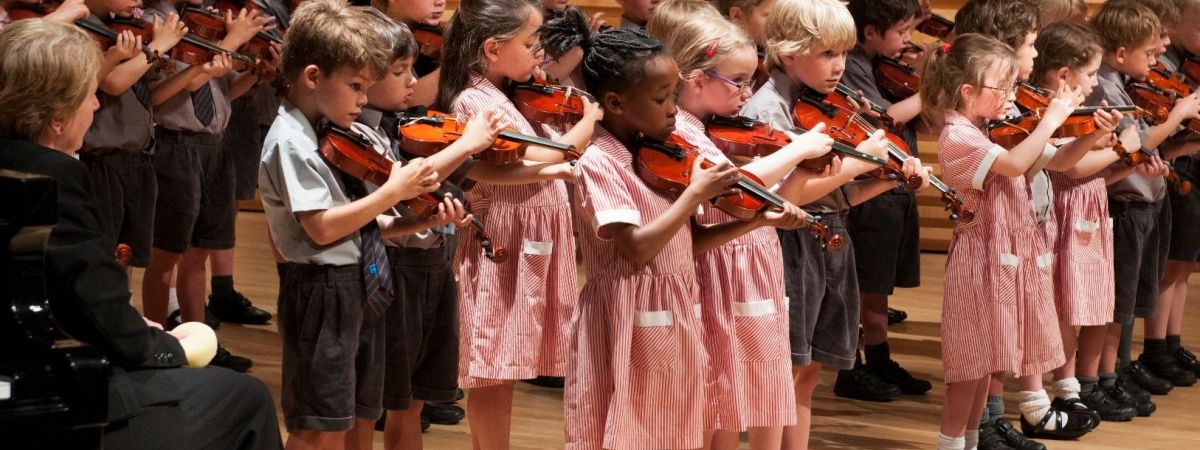A Response to Charlotte Gill
Our Campaign Manager Mike Burke has written a piece in response to Charlotte Gill’s article in The Guardian today…
Charlotte Gill has today written a piece for The Guardian titled Music education is now only for the white and the wealthy. The piece argues broadly that musical education in English schools is not good enough, blaming a combination of an uncaring Conservative government and an academic method of teaching that she believes is too restrictive. She laments the potential musical talents that would have slipped through the cracks as a result.
Charlotte’s belief in the power of musical education is one we share; we could not agree more that it can bring “huge benefits to children’s happiness and learning.” We have advocated in the past, and will continue to do so in the future, for every child to receive the best possible musical education. However, we differ with her on a couple of key points.
Firstly, we must tackle the idea that is espoused in the headline – that musical education is only being enjoyed by the privileged. As a campaign we would be the first to say that more must be done to bring musical education to as many children as possible, but the fact remains that the piece’s headline simply isn’t true. There are plenty of schools that are providing excellent musical tuition, and their example can and should be replicated around the country.
For example, Cobham Free School ensure that every child receives an instrumental tuition, and encourages them to progress with their chosen instrument as far as possible. Michaela Khatib, the Head, has written on our blog about this before, in a piece titled The challenge of providing free, excellent instrumental tuition.
Another example is Dixons Music Primary in Bradford, run by the excellent Michelle Long. As can be ascertained from the name, this school provides a huge focus on music for children coming from an area that faces many challenges. They openly discuss the benefits of musical tuition – both singing and instrumental – in a child’s overall education, and really give kids the opportunity to develop their musical skills.
This is not to say all schools are like this – sadly, there are still too many not providing the level of music that we should strive for – but to show that it can and is being done. Classical music tuition is not and cannot become the preserve of the wealthy and privileged. Rather than being elitist to teach classical music, it would be elitist not to.
Another point Charlotte makes is that music is taught “in a far too academic way.” This is something that we fundamentally disagree with – on the contrary, we would promote an academic method of music teaching. Done in the right way, it is simply the best approach to ensure that children learn and understand how to use their musical instruments. It allows them to really understand the theory behind the music, which is vital for when they take their musical experiences beyond the classroom.
Furthermore, it is especially important that disadvantaged children – those that Gill claims are locked out of musical education – to be taught in such an academic manner. If we give them a ‘lesser’ education or lower the standards expected of them because of their background then – and this applies to all subjects, not just music – we are failing them. Disadvantaged children, even more than others, need to receive the best possible education in order to overcome their position, and this is just as true in music, where they are unlikely to have been exposed or offered the opportunity to discover an instrument outside of school, unlike many of their more affluent peers. We must ensure that every child, regardless of background, receives an academic and wide-ranging musical tuition.
The views expressed here do not necessarily reflect those of PTE or its employees.
